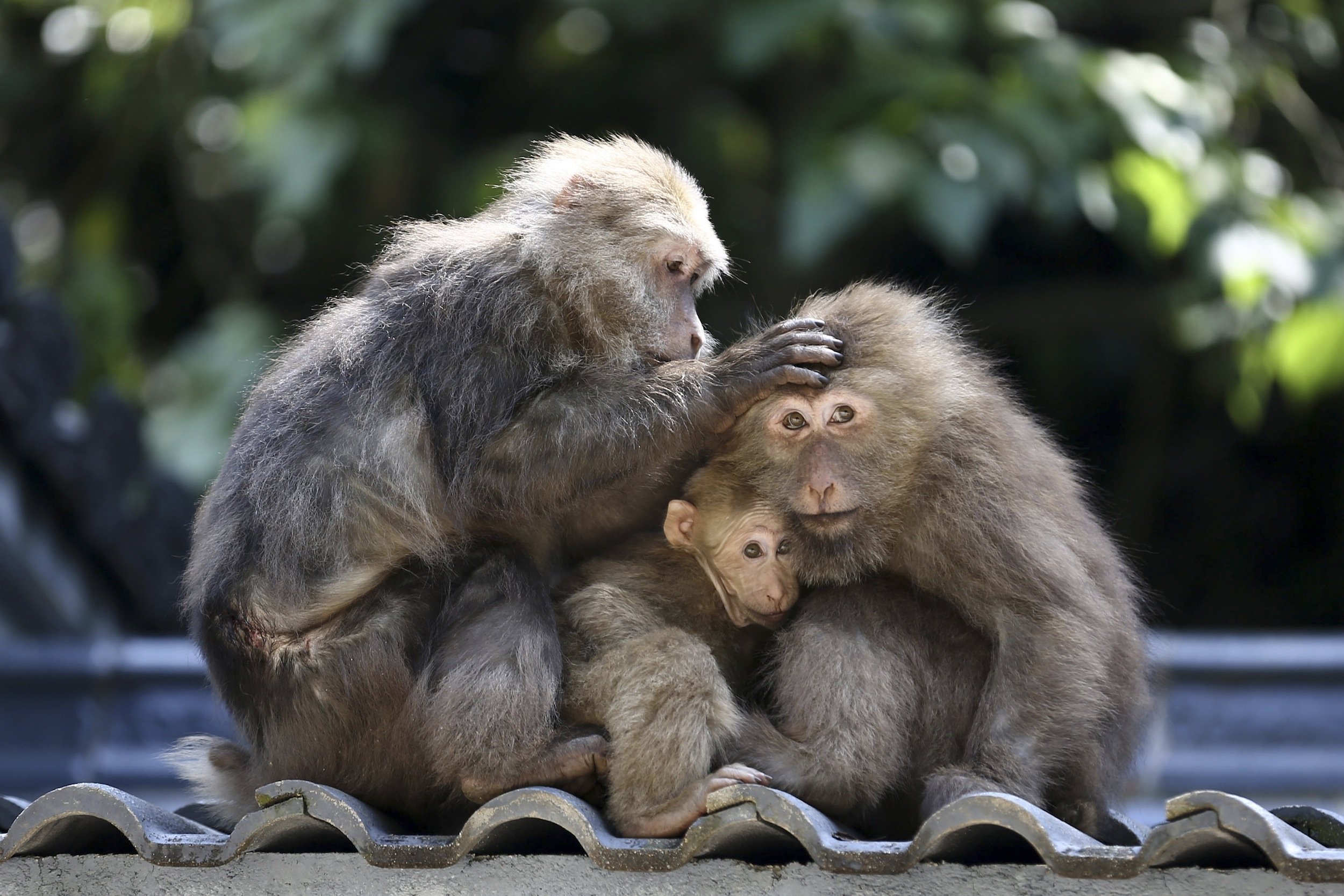
Social status affects the size of some regions of primates' brains, as well as how these parts communicate with one another, a study by Oxford University revealed Tuesday.
For those on extreme ends of the social spectrum—dominant and subordinate—specific parts of the brain are bigger. The size of these brain areas is also affected by how extensive an animal's social group is, the study concluded.
"In the wild, your social status dictates everything. Your access to food, or water or shelter or even mates," said MaryAnn Noonan, the lead researcher in the study, published in the open access journal PLOS Biology.
Animals in the middle of the spectrum showed a less marked reliance on the parts of the brain which were bigger in dominant and subordinate primates. That is because the ends of the spectrum are more stressful, said Noonan, a postdoctoral fellow at the Decision and Action Laboratory at the University of Oxford.
Using magnetic resonance imaging, scientists mapped the gray matter in the brains of 25 macaques who occupied a variety of spots in their social hierarchies. The amygdala, raphe nucleus and hypothalamus were larger in dominant animals while the striatum was larger in subordinate ones.
The amygdala is believed to be partly responsible for processing social and emotional information; the raphe nucleus and hypothalamus are known for controlling neurotransmitters and neurohormones, messengers between brain cells and hormones that are released into the bloodstream, respectively. The striatum, on the other hand, is believed to play a role in making choices.
Interactions between these areas varied with an animal's social status, leading researchers to believe that social status not only determines the brain's structure but also its communication scheme.
When accounting for the size of the macaques social group—in larger ones, animals are required to form more social bonds and coalitions, as well as to become skilled in reading others' social cues—the biggest brain areas were found in the dominant animals in the large groups, while the smallest were found in subordinate animals in the small groups.
"The same skills that you would need to be successful in a large social group…you would need if you're also dominant," said Noonan.
The correlation between social status and brain structure remains a largely unknown science, though serotonin—a neurotransmitter—has been linked to dominance status.
Noonan says the next step is to learn how these findings translate to humans. Individuals' social status changes not only over a lifetime but among different social groups and settings; the researchers will now focus on how our brains, and therefore our behavior, adapt to these changing contexts.
In the long term, said Noonan, the results of this study could be used to tailor cognitive and behavioral therapies in humans who, for example, value themselves less than other members of their social group do, in order to target behavior patterns more precisely.
Uncommon Knowledge
Newsweek is committed to challenging conventional wisdom and finding connections in the search for common ground.
Newsweek is committed to challenging conventional wisdom and finding connections in the search for common ground.
About the writer
Karla Zabludovsky covers Latin America for Newsweek. Previously, she reported for the New York Times from Mexico, covering regional politics, ... Read more





